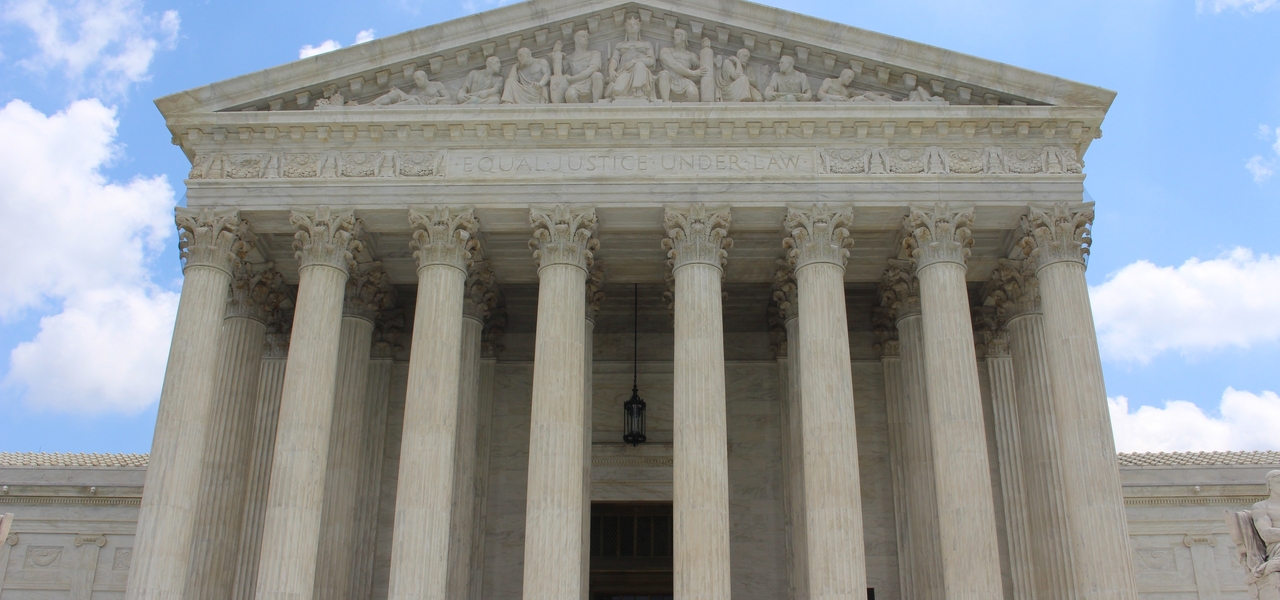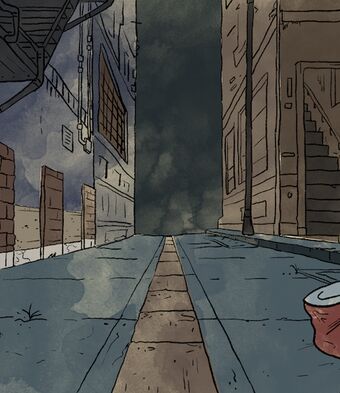If you’ve been involved in the pro-life movement, you’ll have heard about Roe v Wade. But do you know what it is and why it’s so significant?
Roe v Wade was the seminal legal case which opened the floodgates to widespread abortion across America. It’s where the court said a woman’s right to choose an abortion was implicit in her right to privacy under the 14th amendment to the US Constitution.
Since then, lawyers and academics have argued over the verdict and its interpretation. But one thing has been consistent since the ruling: lives have been lost as a direct result.
Now, after nearly five decades, the case will be challenged in the Supreme Court.
For us in the UK, it’s hard to appreciate just how significant this is. Nearly 50 years ago, the highest court in America effectively legalised abortion on demand across all states.
In this piece, we explore the background to the story. What was the law before Roe v Wade? Who were ‘Jane Roe’ and Harry Wade? What does this new court case at the Supreme Court potentially mean?
Abortion in the US before Roe v Wade
Roe v Wade was a landmark legal ruling in 1973, when the US Supreme Court struck down a Texas ban on abortion. This decision effectively said that abortion was legal across the whole of the US. In the ruling, the court said a woman’s right to an abortion was implicit in the right of privacy protected by the 14th amendment of the Constitution.
Up until Roe v Wade, abortion had been illegal across much of the US. Until the late 19th Century, abortion was legal in the US before the point a woman could feel movements of the baby, usually around the four-month mark. In 1857, the newly formed American Medical Association began campaigning for more life-affirming abortion laws. It was hugely successful and by 1880, all 50 states had passed laws banning abortion, except when the mother’s life was at risk.
Then, in the 1960s, the Supreme Court heard a number of cases involving the sale and availability of contraceptives. In 1965, in Girswold v Connecticut the court struck down a Connecticut law banning the distribution of birth control to married couples and in 1972, in Eisenstadt v Baird the court struck down a law banning the distribution of contraceptives to unmarried adults.
These cases encouraged some states to start making changes to abortion laws. Hawaii became the first state to legalise abortion in 1970. New York also legalised abortion in the same year and by the time of Roe v Wade, abortion was legally available in Alaska and Washington.
Roe v Wade
In 1969, Norma McCorvey — a woman from Texas in her early 20s — wanted to abort her baby. Abortion at the time in Texas was only legal for the purposes of saving a woman’s life. Having tried unsuccessfully to get an illegal abortion, she was referred to Texas attorneys Linda Coffee and Sarah Weddington, who wanted to challenge the existing abortion law. She became known as Jane Roe.
In 1970, the attorneys filed a lawsuit against Henry Wade, the district attorney where McCorvey lived. In June 1970, a Texas district court ruled that the state’s abortion ban was illegal because it violated the right to privacy. The case was eventually appealed to the Supreme Court.
Another case was also sent to the Supreme Court at the same time as Roe v Wade. Doe v Bolton was where the Court oveturned the abortion law of Georgia. At the time, the law in Georgia only allowed abortion in cases of rape, severe fetal abnormality or if the mother’s life was at risk. Strict rules also governed the application for an abortion. A woman, given the name Mary Doe, sued Arthur K. Bolton, the Attorney General of Georgia. A US District court ruled that parts of the Georgia law were unconstitutional but it upheld other parts of it. Ms Doe appealed to the Supreme Court and oral arguments were heard the same day as Roe v Wade.
On 22 January 1973, the Supreme Court struck down the Texas law banning abortion in a 7-2 ruling.
In the Roe v Wade majority opinion written by Justice Harry Blackmun, the court said a woman’s right to an abortion was implicit in the right to privacy protected by the 14th amendment of the Constitution.
On the same day, there was another Supreme Court ruling which is less well known. In Doe v. Bolton, the Court’s opinion said that a woman may obtain an abortion after viability if necessary to protect her health. In the Roe v Wade ruling, Justice Harry Blackmun said that the two opinions — Roe and Doe — must be read together. This has been criticised in subsequent years by legal scholars with even pro-abortion legal experts admitting the reasoning was poor.
Edward Lazarus, a former clerk for Justice Blackmun said that:
“as a matter of constitutional interpretation and judicial method, Roe borders on the indefensible.”
What happened to Jane Roe?
For a while following the ruling, McCorvey became an advocate for abortion access, but in the 1980s she changed her mind and claimed she’d been a pawn of two young and ambitious lawyers, looking for a client to challenge the Texas ban on abortion. In the late 1990s she met Rev Phillip Benham, Director of pro-life group Operation Rescue, who shared the good news with her. She became a Christian and committed pro-life advocate.
Mary Doe has since been identified as Sandra Cano. She died in 2014 and after the court cases described herself as pro-life and claimed her attorney, Margie Pitts Hames, lied to her in order to have a plaintiff.
It is one angle on Roe v Wade which is often overlooked. Both women involved in the original cases point to pressure from ambitious lawyers and have since become pro-life.
Increasing number of states introduce pro-life laws
Anyone following the pro-life movement in the US will have seen that it has been growing and there has been an increasing number of states introducing pro-life laws in recent years.
Under President Trump, a number of conservative judges were appointed to the Supreme Court, tilting the balance towards a conservative majority. As a result, some Republican states passed pro-life laws in the full knowledge they’d be challenged in state courts, which would create the opportunity for a case to be heard at the Supreme Court. These states include Arizona, Arkansas, Idaho, Indiana, Kentucky, Montana, Ohio, Oklahoma, South Carolina, South Dakota and Wyoming.
But now, a case will go all the way to the Supreme Court. That is a case from the state of Mississippi. In 2018, state legislators passed the Gestational Age Act which allows abortions after 15 weeks only in cases of medical emergency or instances of severe fetal abnormality. This law was blocked by lower courts as inconsistent with the current legal precedent (established by Roe v Wade) that abortion access is legal, so a petition was lodged with the Supreme Court.
There will now be a showdown at the Supreme Court after it agreed to take up one of the three questions posed by the petition: “Whether all pre-viability prohibitions on elective abortions are unconstitutional’.
Dobbs v Jackson
Since this piece was first published, the date for consideration of oral arguments has been set as 1 December 2021. The case is known as Dobbs v Jackson. That's because Mississippi's only abortion centre, Jackson Women's Health Organisation is challenging the 2018 Gestational Age Act.
In a friend-of-the-court briefing by 141 international legal scholars, it was stated that:
"should the Court find it useful to consider international law in this case, it will find no authority for a human right to abortion."
Far from being out of step with other states and countries, only a minority of nations allow abortion on demand (that is abortion based solely on the request of the woman). Among the minority of countries that do allow abortion on demand, 82% have gestational limits in place. Places like France, Italy and Germany have a 14 week gestational limit.
Here’s why this matters
Why is this so significant? Firstly, Roe v Wade has shaped abortion law in the States for the last 50 years by opening the door to widespread abortion access. If the Supreme Court were to strike down part of it, it would represent a shift towards life-affirming laws. In turn, this will help save lives and protect mothers from the trauma of the abortion experience.
Very often, what happens in one part of the world can shape what happens elsewhere. If Roe v Wade is overturned, it could provide fresh fuel for the movement here to advocate for life-affirming laws. There are already two major attempts in the UK to clarify the law around abortion to birth for disabilities. One is through a legal challenge to existing laws by Down’s syndrome campaigner Heidi Crowter. The case is due to be heard on 6 July at the High Court in England. The second is a Bill in Northern Ireland to outlaw any abortions to birth in NI for serious disabilities like Down’s syndrome.
From a Christian point of view, we have to keep pointing to the life of the unborn child. From the moment of conception, the baby is an image-bearer of God. This is where our dignity ultimately comes from — the connection we have to God Himself. The preborn baby is as deserving of protection as a fully grown adult. It’s also important to stress that any court ruling and subsequent change in laws must be accompanied by a change in hearts.
And this Mississippi case is not the only challenge which could end up in the Supreme Court. There are estimated to be at least 23 abortion-related cases in federal appeal courts. Is the writing on the wall for Roe v Wade? Only time will tell. But one thing’s for sure, what happens over the next few years could shape the global abortion debate for decades to come.





